Non-invasive MRI Based Detection of Uterosacral Deep Infiltrating Endometriosis
Deep infiltrating endometriosis (DIE) frequently affects the uterosacral ligaments, with a prevalence of around 70% in affected patients. However, there is no consensus on the imaging anatomy of the uterosacral ligaments (USLs). Currently, the assessment of USL endometriosis is subjective, lacking…
Key Points Lay SummaryAdenomyosis as a Barrier to Effective Surgery for Dyspareunia in Rectovaginal Endometriosis
Women with endometriosis often experience severe pain during intercourse, known as dyspareunia, which can deeply affect their quality of life and intimate relationships. One form of this condition, rectovaginal septum endometriosis, involves deep, scarred tissue that can cause pain during…
Key Points Lay SummaryIntegrating Virtual Reality Modeling for Enhanced Surgical Management of Endometriosis
Transvaginal ultrasound and magnetic resonance imaging (MRI) conducted by experts are generally sufficient for the surgical planning and management of endometriosis, as noted in a recent study published in the Journal of Minimally Invasive Gynecology. However, incorporating novel techniques such as 3D printing…
Key Points Lay SummaryRecommendations of experts on transvaginal ultrasonography
Following June 2022, the Society of Radiologists in Ultrasound composed of a panel of 16 experts in imaging and management of endometriosis, the recommendations have been published in a recent issue of Radiology. Transvaginal sonography is accepted as a first-line…
Key Points Lay SummaryMRI Improves Deep Infiltrating Endometriosis Diagnosis
Magnetic resonance imaging (MRI) with susceptibility-weighted imaging sequence is the best method of non-invasively diagnosing endometriosis, according to a new study published in the International Journal of Reproductive BioMedicine. However, the authors noted, “Laparoscopy is still the gold standard of…
Key Points Lay SummaryEndometriosis treatment at diagnosis: Is it possible?
For most cases of endometriosis, a diagnostic laparoscopy followed by a therapeutic laparoscopy is recommended by The National Institute for Health and Care Excellence. Hypothesizing that patients with endometriosis might benefit from receiving only a therapeutic laparoscopy, combining diagnosis and…
Key Points Lay SummaryNew adapted ESHRE guidelines for endometriosis.
Eun Hee Yu and Jong Kil Joo from the Department of Obstetrics and Gynecology of Pusan National University School of Medicine, Republic of Korea, published a commentary on the 2022 ESHRE guidelines, referring to the representative changes and important updates in a recently…
Key Points Lay SummaryA review of multimodal imaging modalities for endometriosis.
Since there is a lack of non-invasive biomarkers to diagnose endometriosis clinically, imaging techniques such as transvaginal ultrasonography and MRI have significant importance in preoperative endometriosis diagnosis. These imaging techniques allow appropriate surgical planning before laparoscopic excision, especially in deeply…
Key Points Lay SummaryTransvaginal ultrasound or MRI for retroflexed uterus in endometriosis
Dr Matsuda and colleagues from the Department of Obstetrics and Gynecology, Nippon Medical School, Tokyo, Japan have published their study evaluating the effectiveness of transvaginal ultrasound on the diagnosis of uterine retroflexion in a recent issue of “Journal of Nippon…
Key Points Lay SummaryImaging techniques for fallopian tubes
The imaging techniques used for suspected fallopian tube pathology are ultrasound, hysterosalpingo-contrast-sonography, hysterosalpingography, computed tomography, and magnetic resonance imaging. Among several benign lesions that involve fallopian tubes, pelvic inflammatory disease, tubo-ovarian abscess, salpingitis isthmica nodosa, hydrosalpinx, tubal endometriosis, isolated fallopian…
Key Points Lay SummaryThe best method for the diagnosis of endometriosis: SEE and BELIEVE
Deciding on the best diagnostic procedure for endometriosis patients has been a recent subject of debate. While some clinicians believe non-invasive methods such as imaging and symptom-based treatment should be the choice in the diagnosis, some believe the best method…
Key Points Lay SummaryValidity of Magnetic Resonance Imaging for Deep Pelvic Endometriosis.
Video laparoscopy has become a valuable tool for diagnosing and managing endometriosis in recent years. In cases associated with deep infiltrating endometriosis, the need for a non-invasive diagnostic method before laparoscopic evaluation paves the way for using MRI. The use…
Key Points Lay SummaryChasing gold to find endometriosis.
Endometriosis is a disease that doesn’t have a proper preoperative diagnostic test. Thus, animal models to study endometriosis are vital to show the effects of drugs and the effects of the disease on the body. In the study conducted by…
Key Points Lay SummaryThe accuracy of transvaginal ultrasound and magnetic resonance imaging for deep urinary tract endometrisis.
The prevalence of urinary tract endometriosis is 19-53% in patients within deep infiltrating endometriosis cases. The bladder and ureteral are the most common sites of the involvement. While preparing a radical surgery for a patient with deep endometriosis, the diagnosis…
Key Points Lay SummaryWho Is Diagnosing my Endo?
It is possible to acquire the skills necessary to diagnose endometriosis lesions as well as adenomyosis using three-dimensional rectosonography after a short learning period in an expert radiology center. This is according to a new study by French researchers published…
Key Points Lay SummaryPlanning surgery for recto-sigmoid endometriosis with 3D virtual models.
Efforts to reduce the high complication rate of rectosigmoid surgery in deeply infiltrated endometriosis are of great interest to gynecologists. 3D printing, currently used in various surgical specialties to support surgical planning and guide intraoperative procedures may be a way…
Key Points Lay SummaryImaging Techniques Able to Predict Depth of Endometriosis Before Surgery
Transvaginal ultrasound (TVUS) and pelvic magnetic resonance imaging (MRI) performed by a specialist can accurately predict the depth of rectosigmoid endometriosis before surgery, according to a new study published in the Journal of Minimally Invasive Gynecology. Both approaches are similar…
Key Points Lay SummaryA novel approach to a common lesion: mapping adenomyosis by imaging modalities
Dr. Habiba from Leicester, UK, and Dr. Benagiano from Rome, Italy, have published their overview on adenomyosis in an attempt to set light on a clinically important topic in a recent issue of the "International Journal of Environmental Research and…
Key Points Lay SummaryShining like fireflies: a new approach to visualize early endometriosis
Endometriosis is a complex and unsolved disease that requires animal studies in order to understand its nature. There are a group of animal models designed for endometriosis studies, but most require sacrificing the animal. In the experimental study designed by the team…
Key Points Lay SummaryPreoperative endometrioma diagnosis
The current clinical experience of gynecologists and radiologists indicates that distinguishing a hemorrhagic cyst from endometriomas or ruptured corpus luteal cysts is compelling. For this reason, chosen criteria that can lead to decisive distinctions are valuable for preoperative identification of endometriomas.…
Key Points Lay SummaryThe Communication Gap Between Specialists for Endometriosis Diagnosis and Management
An approach to help the different specialties which work as a team but lack sufficient communication in endometriosis management build better communication was proposed by Leonardi et al. from Australia and Canada in their opinion article which was published in…
Key Points Lay SummaryAdenomyosis: accuracy of the diagnostic methods and the synchronism with deep infiltrating endometriosis
Dr. Alborzi and associates from Shiraz University of Medical Sciences, Iran, have published their comprehensive retrospective research conducted on 3725 patients with clinical symptoms of endometriosis over a period of 3 years, in "Reproductive Sciences" medical journal. A relationship between…
Key Points Lay Summary“Advanced gynecological ultrasound” for women with suspected endometriosis
Different clinical forms of endometriosis such as superficial endometriosis, endometrioma, and deep infiltrating endometriosis are present. Although no specific diagnostic tool is available for endometriosis, clinical findings, physical examination and imaging including transvaginal ultrasound and MRI are helpful to determine…
Key Points Lay SummaryNanomedicines for Endometriosis
Scientific research on nanoparticles is intense as they have many potential applications in medicine. Nanomaterials have been widely explored for imaging and treatment of various diseases, especially cancer, over the recent twenty years. The absence of non-invasive diagnostic tests and…
Key Points Lay SummaryUltrasound for the Detection of Deep Infiltrating Endometriosis
Endometriosis is a disease that causes significant morbidity to women worldwide. Deep infiltrating endometriosis (DIE) is a term used to characterize endometriosis that has invaded deeper pelvic structures and is associated with significant inflammatory, fibrotic, and surgically complex disease. Depending…
Key Points Lay SummaryWhy Persistent or Recurrent Endometriosis Happens? - Dan Martin, MD
The objectives of Dr. Martin in this presentation are to understand the difficulties in recognition of deep and hidden endometriosis, difficulties in recognition of small lesions of micron size, and differentiate the look-alike lesions of endometriosis. He addressed overcoming these…
Key Points Lay SummaryEndometriosis: Less is better. How to improve the integration between surgical and medical therapy - Errico Zupi, MD
In this presentation, Dr. Errico Zupi, Associate Professor in the Department of Obstetrics and Gynecology at the University of Rome talks about the importance of an integrative approach comprising of both medical and surgical interventions to treat endometriosis. "The first…
Key Points Lay SummaryComparison of diagnostic accuracy of imaging modalities for the deep infiltrating endometriosis
The treatment of deeply infiltrated endometriosis (DIE) is usually personalized and the potential success for the available therapeutical options is dependent on early and accurate diagnosis. Laparoscopy is the gold standard for the diagnosis of DIE. Other non-invasive diagnostic methods…
Key Points Lay SummarySegmental bowel resection could be predicted using MRI in patients with rectal endometriosis
The rectum and recto-sigmoid junction are the preferential localisations of bowel endometriosis. The three main surgical approaches are shaving, disc excision, and segmental resection. It is very important to decide the most appropriate surgical method preoperatively and to plan accordingly. …
Key Points Lay SummaryDiagnosing Deep Endometriosis Using Transvaginal Elastosonography
Deeply infiltrating endometriosis (DIE) is an advanced form of endometriosis that causes significant morbidity to a large number of women. Early detection of endometriosis is imperative for early treatment and improved outcomes for these patients. Currently, transvaginal ultrasound (TVUS) and magnetic…
Key Points Lay SummaryUltrasound diagnosis of endometriosis: One Size Does-Not-Fit-All
Deeply infiltrating endometriosis (DIE) is an advanced form of endometriosis that causes significant morbidity to many women. The Pouch of Douglas (POD), otherwise known as the rectouterine space, is the anatomic area between the posterior cervix and anterior rectum. Its…
Key Points Lay SummaryImproved fusion imaging for the detection of Endometriosis
This paper studied a new fusion method for magnetic resonance (MR) and ultrasound (US) imaging for the appropriate diagnosis of endometriosis. The diagnosis of endometriosis in patients with a chronic pelvic disease is delayed, due to the disease, patient, and physician-led…
Key Points Lay SummaryHow should MRI images be obtained for optimal endometriosis detection?
It is well known that the diagnosis of endometriosis for some patients with the chronic pelvic disease is delayed, often for years, due to the disease, patient, and physician-led factors. An area of active study is how ordering physicians can…
Key Points Lay SummaryImaging of gastrointestinal endometriosis
Endometriosis is a disease characterized by the ectopic implantation of endometrial tissue to surrounding pelvic and extra-pelvic structures. One frequent site of involvement is the gastrointestinal(GI) tract, which occurs especially among women with deep infiltrating endometriosis. Most cases of GI-involving…
Key Points Lay SummaryDoes Getting Pregnant Really Help When You Have Endometriosis?
Pregnancy has a favorable impact on the volume of deep infiltrating endometriosis lesions according to a study published in the scientific journal "PLoS One". This is the first study that demonstrates such a favorable impact of pregnancy on endometriosis lesion…
Key Points Lay SummaryCurrent Status of Transvaginal Ultrasound Accuracy in the Diagnosis of Deep Infiltrating Endometriosis
Transvaginal ultrasound (TVUS) is an imaging tool that is irreplaceable for the diagnosis of multiple gynecologic conditions such as ovarian torsion, ectopic pregnancy, and uterine leiomyomas. TVUS is increasingly being used in the diagnosis of endometriosis as it can assess…
Key Points Lay SummaryWorrying signs of Endometriosis on Hysterosalpingography
Hysterosalpingography (HSG) is an imaging modality that utilizes fluoroscopy in order to evaluate the uterine cavity, fallopian tubes, and adjacent peritoneal cavity by injecting contrast media through the cervical canal. It is an important tool in the work-up of patients who…
Key Points Lay SummaryEndometriosis Severity and Complication Risks Following Laparoscopic Surgery
In a research article published in the journal Acta Obstetricia et Gynecologica Scandinavica, researchers at Brigham and Women's Hospital in Boston, Massachusetts suggested that the severity of endometriosis could not be a predictor of the risk of post-operative complications. In…
Key Points Lay SummaryPost-menopausal women diagnosed with Endometriosis and "Imaging"
Postmenopausal endometriosis is an underrecognized clinical entity that may present similarly to those of younger patients with endometriosis. Radiologists have an important role in the diagnosis of these patients as they recommend which imaging study should be used to differentiate…
Key Points Lay SummaryCloverleaf Sign: A new MRI sign for diagnosing DIE
Magnetic resonance imaging provides accurate information for the staging of deeply infiltrating endometriosis, especially when the patient is virgin, obese or has limited transvaginal examinations due to pelvic pain. In this recently published study in Investive Radiology, Harma et al.…
Key Points Lay SummaryNot a malignancy, it is "polypoid endometriosis"
Ghafoor S. et al., from Memorial Sloan Kettering Cancer Center, NY, USA, has recently reported a case of a 60-year-old postmenopausal woman with an incidental pelvic mass mimicking a pelvic malignancy on ultrasound. Their paper has been published in the…
Key Points Lay SummaryWhich Diagnosis Technique is Better?
Transvaginal ultrasound provides a more accurate localization of vaginal and recto-vaginal endometriosis compared to magnetic resonance imaging (MRI) according to a study published in the International Journal of Gynecology & Obstetrics. However, MRI has better accuracy in detecting bladder endometriosis…
Key Points Lay SummaryEndometriosis that involves the nerves: how Radiologists can help
Endometriosis is a disease with variable clinical symptoms. While rare, nerve involvement by endometriosis may cause neurologic symptoms such as pelvic pain, muscle weakness, bowel and bladder incontinence, and paraplegia depending on the specific nerve involved. Thus, abdominal radiologists should…
Key Points Lay SummaryTransvaginal Ultrasound and the Imaging of Endometriosis
Ultrasonography (US) is an imaging tool that uses sound waves to produce a two-dimensional picture inside of the body. The ultrasonography has become especially useful in the assessment of gynecologic pathologies such as endometriosis. Depending on the severity of endometriosis,…
Key Points Lay SummaryENDORECT scoring system to identify patients at risk for rectosigmoid endometriosis
Patients who suffer from endometriosis may benefit from a preoperative score that predicts rectosigmoid involvement. A recent paper published by Huchon et al. at Poissy Saint-Germain en Laye, France, recruited 119 women who underwent laparoscopy for endometriosis between 2011 and…
Key Points Lay SummaryMRI-based "ENZIAN" scoring system and intra-operative endometriosis findings
Endometriosis is a chronic inflammatory disease whereby endometrial-like glands grow and invade the extra-uterine structures. Endometriosis may affect various parts of the body, including the peritoneum, ovaries, or retroperitoneum. Recently, non-invasive methods for detecting these lesions have included trans-vaginal ultrasound…
Key Points Lay SummaryA guide on the Assessment of Pelvic Endometriosis Imaging
Endometriosis is a disease whereby ectopic endometrial-like tissue invades and survives outside of the endometrial cavity. While biopsy-proven confirmation of endometriosis during laparoscopy has been considered the gold standard for diagnosis, non-invasive imaging modalities are increasingly being utilized for preoperative…
Key Points Lay SummaryThe appearance of postoperative endometriosis by imaging methods
Endometriosis is a chronic gynecological disease mostly encountered in reproductive-aged women. Endometriosis can occur in three different entities: peritoneal, ovarian and deep endometriosis. Golden standard diagnosis is made by histopathological examination of surgical material after laparoscopic surgery in women with…
Key Points Lay SummaryPreoperative Staging of Endometriosis: The Value of MRI After Dynamic Transvaginal Ultrasound
Since endometriosis is a chronic and progressive disease, early diagnosis and proper staging are important for the patient and for the clinician to discuss and plan the required surgical procedures for treatment. Common diagnostic tools for pre-operative staging of deep…
Key Points Lay SummaryFeasibility of MRI-Transvaginal Ultrasound Imaging for Deeply Infiltrating Endometriosis
Endometriosis is a disease whereby endometrial tissue is present outside of endometrium. A specific form of endometriosis, Deeply Infiltrating Endometriosis (DIE), is characterized by endometriotic glands that invade through the endometrium and other structures in the pelvis and is associated…
Key Points Lay SummaryMultimodality imaging and clinicopathologic assessment of abdominal wall endometriosis
Abdominal wall endometriosis is a rare clinical entity frequently diagnosed with a significant delay and easily misinterpreted despite multimodality imaging. In the study of Jaramillo-Cardoso et al. which has recently been published in the journal Abdominal Radiology, the clinical, multimodality…
Key Points Lay SummaryA Way to Better Diagnose Colorectal Endometriosis
Combining magnetic resonance imaging (MRI) with computed tomography-based virtual colonoscopy (CTC) can make the assessment of colorectal endometriosis more accurate. This is important because it can help doctors plan the surgery better and inform their patients. In order to evaluate…
Key Points Lay SummaryDirect shedding of endometrioma contents visualized by ultrasonography
Endometriosis is one of the leading causes of chronic pelvic pain in women during their childbearing years. Researchers from Italy have recently published a case report in the European Journal of Obstetrics & Gynecology and Reproductive Biology observing the direct shedding of endometriotic…
Key Points Lay SummaryUsing the "Mushroom Cap" sign to describe endometriotic masses
Endometriosis is a disease whereby ectopic endometrial cells attach and grow outside of the uterus. A number of imaging techniques have been used to evaluate and assess endometriotic lesions. Magnetic resonance imaging (MRI) is a type of imaging modality used…
Key Points Lay SummaryUsing near-infrared imaging to discriminate malignant from benign endometriosis
Endometriosis usually begins as a benign disorder with an increased risk of developing ovarian and endometrial cancers. Endometrioid and clear cell carcinoma histologic subtype of ovarian cancer partially originate from endometriosis. Recent studies on the pathogenesis of endometriosis‑associated ovarian cancer…
Key Points Lay SummaryAtypical Sites of Deeply Infiltrative Endometriosis
Endometriosis is the presence of endometrial tissue outside the uterine cavity and is characterizes by fibrosis and inflammatory reaction. The pelvic cavity is the most common location for endometriotic lesions, which involves the retro-cervical space, ovaries, vagina, rectosigmoid colon, bladder…
Key Points Lay SummaryMRI Best at Detecting Intestinal Deep Infiltrating Endometriosis
Magnetic resonance imaging (MRI) seems to be a better method in identifying deep infiltrating endometriosis in the intestine compared to two-dimensional ultrasonography (2DUS), found a study by researchers in Italy and Spain. However, this does not seem to be the…
Key Points Lay SummaryDiagnosis and management of adolescent endometriosis
Early onset endometriosis (EOE) is characterized by endometriosis that begins around menarche or early adolescence. Recent evidence suggests that this form of endometriosis may have a different pathogenic origin than that of adult-onset endometriosis. This opinion article suggests that early…
Key Points Lay SummaryDetection and diagnosis of deep endometriosis in the clinical setting
This review aims to evaluate the contribution of imaging techniques including transvaginal sonography (TVS) and magnetic resonance imaging (MRI) to the diagnosis of deep infiltrating endometriosis (DIE). Endometriosis is defined by the presence of endometrial tissue outside the uterus and…
Key Points Lay SummaryNew Approach could help Preoperative Differentiation of Endometriosis and Cancer
Researchers in Japan identified some radiological parameters that could be used to differentiate between endometriosis-associated ovarian cancer (EAOC) and a particular type of benign ovarian endometriosis (OE), making it easier for doctors to offer the right treatment to women who…
Key Points Lay SummaryWith so many imaging tools and modalities, which one should be used for endometriosis?
Intestinal endometriosis affects 5 to 12% of women with endometriosis and commonly presents as dyschezia, rectal bleeding, cyclic defecation pain, constipation, and diarrhea. Currently, surgical treatment includes segmental rectal resection with colorectal anastomosis, but it is often riddled with complications.…
Key Points Lay SummaryUpdates in the Field of Endometriosis: Imaging
Hoyos, Johnson, and Puscheck wrote a chapter titled “Endometriosis and Imaging” that discusses the imagining technologies that can be used to diagnosis and examine individuals with the disease. This chapter evaluates three types of imagining, namely Ultrasound (US), Magnetic Resonance…
Key Points Lay SummaryUpdates in the Field of Endometriosis
A lot of progress has been made thus far in the field of endometriosis. Research has discovered various genetic and epigenetic components involved in endometriosis. There has also been a progression in the diagnosis and treatment of the disease since…
Key Points Lay SummarySpecial considerations for the evaluation of Endometriosis on MRI
Pelvic endometriosis may involve either superficial peritoneal or ovarian tissues or may spread to the organs and ligaments of the pelvis in what is known as deeply infiltrating endometriosis (DIE). According to the size and location of these lesions, patients…
Key Points Lay Summary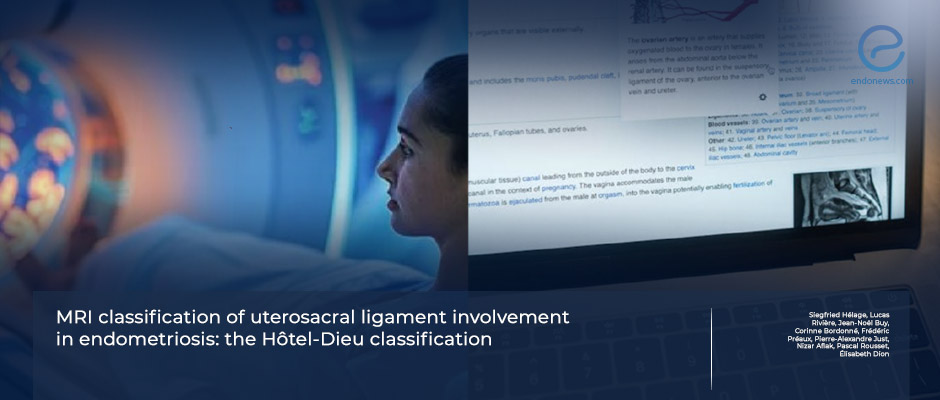
 By Selma Oransay
By Selma Oransay

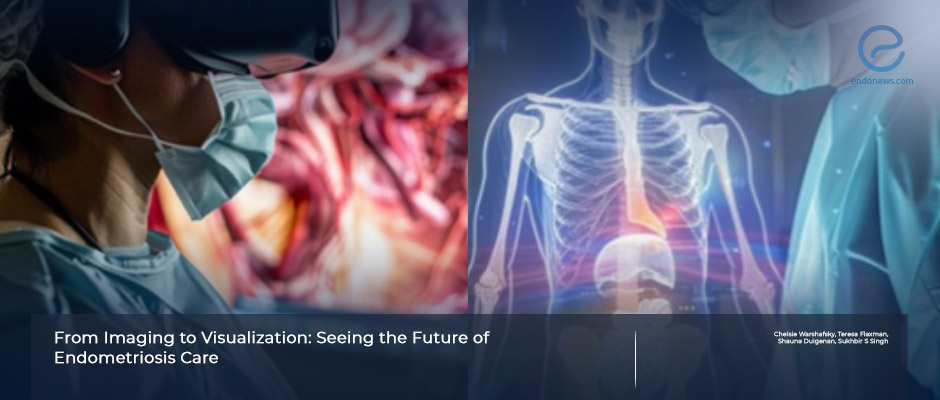
 By Özge Özkaya
By Özge Özkaya
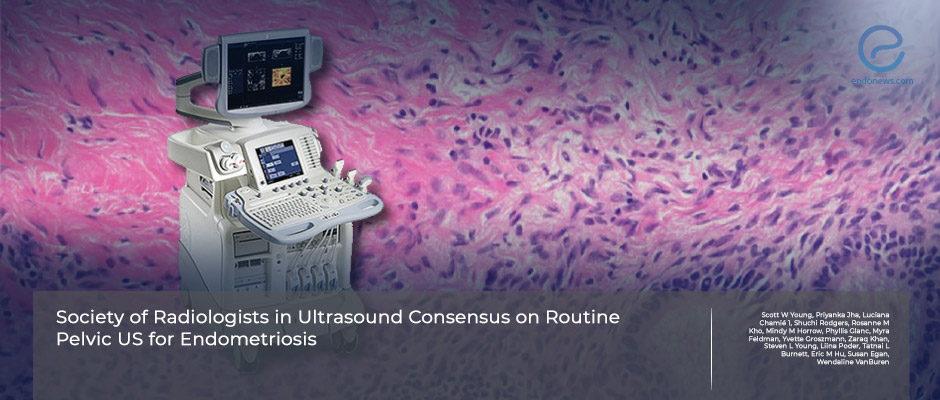
 By Nasuhi Engin Aydin
By Nasuhi Engin Aydin
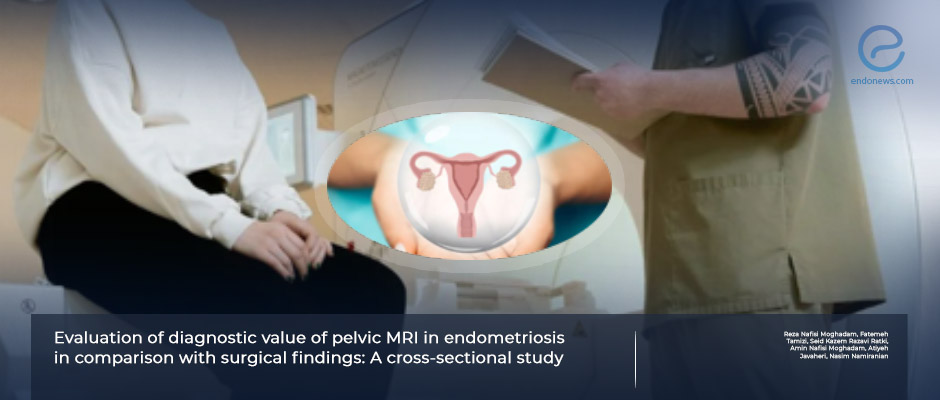

 By Eylül GÜN
By Eylül GÜN







 By Bahar Yuksel
By Bahar Yuksel









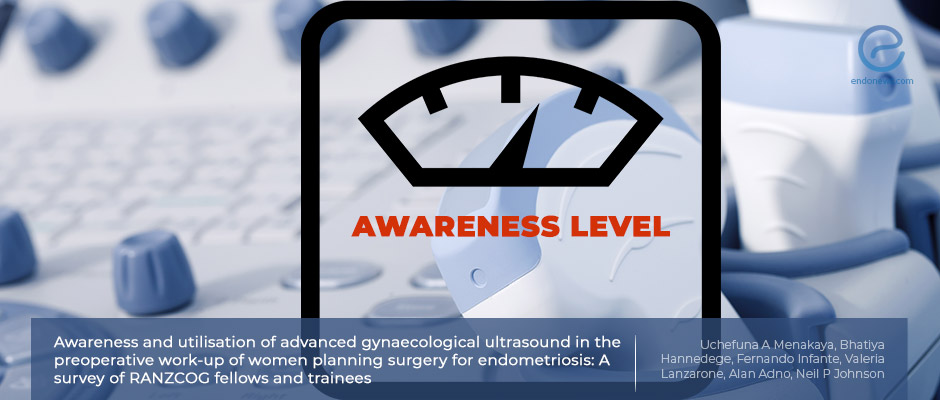
 By Hale Goksever Celik
By Hale Goksever Celik

 By Dr. Youngran Park
By Dr. Youngran Park

 By Murat Osman
By Murat Osman

 By Ellen Tumimbang
By Ellen Tumimbang















 By Irem Onur
By Irem Onur














 By Yu Yu
By Yu Yu
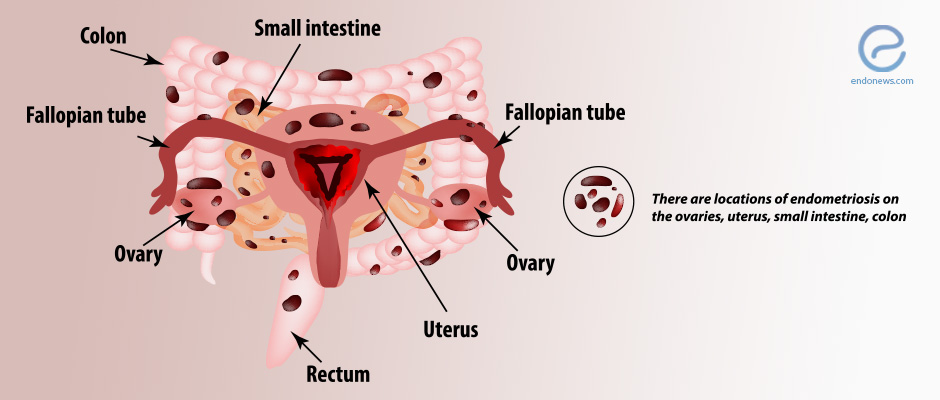






 By Kasthuri Nair
By Kasthuri Nair

